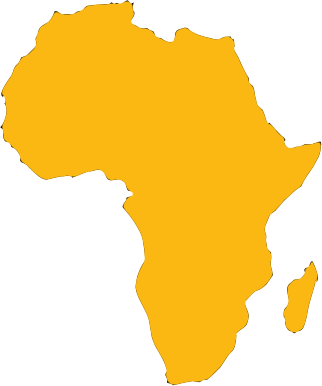China and the South African Academia
By Emmanuel Matambo - Public Policy and Research Institute of Zimbabwe (PPRIZ)
There are three key sectors that a country seeking a positive narrative and stable presence in another country would wish to cultivate: the political, academic (incorporating students, lecturers, intellectuals and public thought leaders), information (media) sectors. In a previous
article, I wrote about China’s relations with different political parties in South Africa. This, I argued, is a consequence of realism and necessity. South Africa’s ruling party, the African National Congress (ANC), has been squandering support. At local government level, the party has lost outright power in some quarters, and has been forced into coalitions in others. Thus, China has been clever to start extending overtures to parties that are likely to benefit from the ANC’s waning fortunes. The only caution China might exercise is that it would not want to be overtly friendly with parties such as
Democratic Alliance (DA) and the
Freedom Front Plus that are associated with sectarian – mostly white – elements that are redolent of South Africa’s apartheid past. In this piece, I look at China’s engagement with South Africa’s academia. This is a calculated move to elicit favorable appraisals from thought leaders. The same has been done by many other players with a foothold in Africa.
Roughly, the academic space, vis-à-vis China, is divided into three categories: optimists (who support China and its growing presence in, an influence on, Africa), realists (those who exercise a blend of cautious optimism while sounding possible hazards) and pessimists who perceive China’s increasing global footprint with a sense of presentiment. China engages the academic community in a variety of ways. One such way, less controversial than the others, is in the realm of scientific collaboration. The University of the Western Cape’s School of Natural Medicine has a Chinese Medicine & Acupuncture. Traditional Chinese Medicine, the University announces, “is a branch of Complementary and Acupuncture Medicine (CAM)
based on more than 3,500 years of Chinese medical practice.” The various forms of treatment on offer include acupuncture, cupping therapy, massage (
tui na), exercise (
qigong) and dietary therapy. This brand of academic engagement rarely attracts critical attention as it seems to dovetail with African forms of medicine that are based on natural remedies. Secondly, collaboration in this area does not readily come with undertones of Chinese interference and domination in African affairs. In fact, with the widespread scepticism that emerged against synthetic, mostly Western, treatments of COVID-19, African doubters are likely to give alternative medicine more regard than has hitherto been the case. Technological collaborations between Africa and China have produced varying results, with some academics arguing that China’s technologies could be
used for cyber espionage and to encroach on privacy. Their opponents
argue that there is no evidence to that effect.
Areas that are more controversial in China’s association with South African academics are usually in the realm of social sciences, as is the tendency of these academic enterprises to create narratives about players in the international system. Confucius Institutes (CIs) are the most prominent prong in China’s incursions in South Africa’s academic space. Run by the Chinese International Education Foundation (CIEF), the primary role of CIs is to start with language teaching “and
use cultural blending to promote people-to-people connections.” It is well noted that China has been treated as an unknown player in global affairs. The straitjacket into which Mao Zedong had put it from 1949, when he established the People’s Republic of China, to his death in 1976, did not help to demystify China. Thus, it is imperative that as China’s global stature is growing, so should knowledge of it – from its state actors right down to ordinary Chinese some of whom are plying their trade in Africa.
The aspect of people-to-people interactions is thus crucial; perceptions of China are not only seen through the actions of Chinese officials and multinational corporations. American writer Howard French has gone so far as to say that the future of Africa-China relations will not be shaped by well-crafted strategies from Beijing, but by how ordinary Chinese, not under the behest of their government, will
conduct themselves in Africa and the impact that this is likely to have on their African counterparts. This is a reasonable prediction. While China as a state is expected to peddle politically correct and diplomatic homilies about mutual development and win-win cooperation, ordinary Africans, especially in countries where they have the power to vote for their leaders, will perceive China from their interaction with the Chinese they brush shoulders with. In most cases, these are Chinese entrepreneurs with no constraints in their pursuit of profit.
Ordinary-level elations, therefore, away from the glare and propaganda blitz of state-level interaction, tend to be more credible, unvarnished and the animosity that occasionally flares up in them is partly born out of ignorance of each other’s history, culture and quotidian quirks. CIs try to end this ignorance. On this score it is difficult to find fault in them. However, CIs have attracted a lot of attention, both positive and negative. For obvious reasons, China has high numbers of these institutes in influential countries - with the United States leading the chart. In Africa, South Africa has the highest number (six) of CIs. More than teaching mandarin, CIs have been
involved in “vocational and technical training, contributing to the economic development of local communities” and contributing to academic discourses on Africa-China relations. Predictably, those who write under the auspices of CIs tend to be Sino-optimists. This is par for the course for institutes that are of Chinese provenance and are expected to strengthen Africa-China relations. China knows, however, that CIs are inadequate as an academic tool for promoting its image in Africa.
For this reason, China tries to extend collaboration both with emerging and established academics. This is a common feature in the world of academia. Through scholarships, research grants and other incentives such as funded conferences, non-African countries with requisite means try to make favorably disposed individuals out of African academics. China thus joins a long line of like-minded competitors. The difference with China is that it comes with a worldview that is substantially different from that of its Western competitors. What is worse for the West is that significant numbers of African politicians and intellectuals seem to be tolerant if not supportive of China’s worldview. Writers such as Paul Tembe from the University of South Africa will be crucial to promoting China’s image in South Africa. Tembe has
written extensively about China’s rise and how the leadership of Xi Jinping – whom he calls “a world leader with a global vision” – offers some lessons and inspiration for South Africa. In addition, Tembe argues that erstwhile colonial superpowers, the United States included, should “allow the countries, cultures, and civilisations of formerly colonized peoples to evolve uninterrupted and on their own terms.” This, of course is music to China’s ears, as it is in tandem with China’s hostility to foreign interference in domestic affairs.
In summary, reaching out to academics is well and good, but it has to be accompanied by tangible results of China’s presence in South Africa. At the end of the day, it is ordinary South Africans who have the last say on who rules the country. Hence, it is to them that a credible image of China should be shown and accepted. Academics can play a pivotal but auxiliary role in projecting such an image.
Emmanuel Matambo is A Research Fellow at the Public Policy and Research Institute of Zimbabwe (PPRIZ)
Article Tags
Chinese International Education Foundation
 Africa
Africa Education
Education Joburg
Joburg South Africa
South Africa Greatest Africans
Greatest Africans Africa
Africa Education
Education Joburg
Joburg South Africa
South Africa Greatest Africans
Greatest Africans